
The 1890s turned out to be a significant decade for William Wallace, Richard the Lionheart and Joan of Arc. That’s because it witnessed the birth of an art form, one that would present their extraordinary stories to a global audience: the moving picture. The pioneers of this new medium went quickly from single-shot novelty pieces to short narratives, to films an hour or more in length. Meanwhile, thousands of custom-built venues popped up across America, Europe and beyond. In the dying days of the 19th century, a new industry was born.
That industry was greedy for stories, and by the dawn of the 20th century, it was mining many of these tales from the distant past. There has never been a genre of ‘medieval film’ in the way that there has been of westerns or ‘sword-and-sandal’ epics like Ben Hur or Gladiator. But the past 130 years have witnessed a deluge of movies inspired by the Middle Ages. These have been based on real persons or events, such as El Cid or Joan of Arc; inspired by medieval legends (King Arthur and Robin Hood); or, if we stretch our definition, have been set in imaginary worlds with medieval features, like The Lord of the Rings.
What kind of Middle Ages do these films present to us? The technology of moving pictures may have been new in the 1890s but cinema was marked by the culture into which it was born: late Romantic European nationalism. This is clear both from the music of early cinema (‘silent films’ were never silent) and from the acting styles of those early films, which borrowed from theatre and opera and often strike modern audiences as melodramatic. It is also evident from the film-makers’ assumptions about heroism, nationalism and romantic love.
Diese Geschichte stammt aus der March 2024-Ausgabe von BBC History UK.
Starten Sie Ihre 7-tägige kostenlose Testversion von Magzter GOLD, um auf Tausende kuratierte Premium-Storys sowie über 8.000 Zeitschriften und Zeitungen zuzugreifen.
Bereits Abonnent ? Anmelden
Diese Geschichte stammt aus der March 2024-Ausgabe von BBC History UK.
Starten Sie Ihre 7-tägige kostenlose Testversion von Magzter GOLD, um auf Tausende kuratierte Premium-Storys sowie über 8.000 Zeitschriften und Zeitungen zuzugreifen.
Bereits Abonnent? Anmelden

Viking mussels
ELEANOR BARNETT digs into archaeological research to recreate a Viking-cum-AngloSaxon seafood dish from medieval York
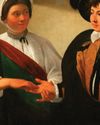
Fingers, frog's and fairies
Fortune telling was all the rage in the 16th and 17th centuries, and practitioners would stop at nothing to tap in to the supernatural. Martha McGill tells a story of Highland seers, tarot cards and encounters with the spirit world
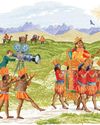
Nothing matches being with Alexander the Great on foot in the Hindu Kush
AT OUR LITTLE FILM COMPANY, MAYA VISION, we recently took the decision to digitise all of the rushes of our key films so that we could dispose of hundreds of boxes of tapes that had been kept in storage, throwing out stuff we thought we would never need again.

Library of the dead
Highgate Cemetery, created as a fashionable resting place for wealthy Victorian dead, is a veritable who's who of London's great and good. PETER ROSS roams the avenues of this most atmospheric necropolis
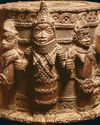
Slavery, exploitation and racism. These tragedies have long dominated histories of Africa. But there's another way to tell this story. And it's one that puts Africans right at the centre of their continent's extraordinarily rich and vibrant past
An 1414, in the Chinese city of Nanjing, a giraffe caused a stir. Amid a crowd of shocked, noble spectators, an official, leading the creature via a rope tied round its face, presented it to China's Yongle emperor. His officials said it was a qilin - an auspicious unicorn - which his sage governance had made appear.
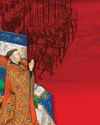
England's forgotten hero
When the Hundred Years' War was reaching a climax, one man was fighting tenaciously to secure the English claim to the French crown. So why, asks Joanna Arman, is Henry V's formidable brother, John, Duke of Bedford, not better known?
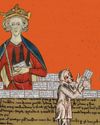
HENRY III AND THE MAGNA CARTA THAT MATTERED
King John's sealing of a charter at Runnymede in 1215 is one of the most feted moments of the Middle Ages. Yet, writes David Carpenter, it was the charter issued by his son 10 years later that became fundamental to England's history

Gutenberg publishes a pioneering new book
‘The printing press triggers an information revolution
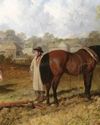
How empire ruptured rural Britain
We know that enslaved Africans and their descendants suffered in the distant colonies of empire. But, as Corinne Fowler explains, the colonial system also had dire impacts on people in the countryside of the 'motherland'
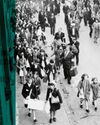
"I FELT VERY ALONE IN A WORLD GONE HORRIBLY MAD"
It was a moment of possibilities, dislocation and dread. Dan Todman tells the story of the 1.5 million urban Britons evacuated to the countryside at the start of the Second World War